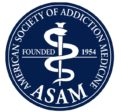Cocaine Treatment
What is Cocaine?
Cocaine is a powerful, addictive stimulant drug made from the leaves of the coca plant. It also has a high potential for abuse. A 2014 study by the National Survey on Drug Use and Health revealed that over 900,000 Americans had a cocaine dependence or abuse problem in the last year. Additionally, the National Center for Health Statistics reported more than 5,000 cocaine overdose deaths. Use can range from sporadic to habitual use and addiction. Typically, users can snort, inject, or smoke the substance. Users who frequently inject the drug are at higher risk of contagious blood diseases such as HIV or Hepatitis. In excessive amounts, cocaine can lead to heart attack, stroke, seizures, as well as sudden death.

Safe, effective cocaine treatment
The first step in overcoming drug abuse and addiction is medical detox. Although some individuals will try to detox on their own or in an outpatient detox, the safest option is to do it under medical care. Often, those who try to detox on their own will return to the drug and subsequently relapse. Cocaine use increases the amount of the feel-good chemical dopamine in the brain. As a result, habitual cocaine usage will make the brain adapt to this excess of dopamine. Ultimately, a person needs higher levels of cocaine in order to reach just a normal level of dopamine. Conversely, if a person suddenly stops using cocaine, they may experience severe withdrawal symptoms including depression and suicidal thoughts. This another reason why a proper medical detox should be the only option when detoxing from such a dangerously addictive drug.
Short-term effects of Cocaine
- Loss of appetite
- Increased heart rate
- Contracted blood vessels
- Dilated pupils
- Nausea
- Bizarre, erratic behavior
- Hallucinations
- Intense euphoria
- Anxiety
- Paranoia
Long-term effects of cocaine use may include:
- Damage to blood vessels of heart and brain
- High blood pressure
- Liver, kidney and lung damage
- Destruction of nose tissue (if sniffed)
- Respiratory failure (if smoked)
- Infectious disease
- Malnutrition
- Tooth decay
- Sexual problems
- Severe depression
- Tolerance and addiction
Do I need cocaine addiction treatment?
Signs of a cocaine problem may include:
- Planning daily activities around cocaine
- Engaging in high-risk activities and behaviors
- Loss of interest in activities that used to be pleasurable
- Continued use despite negative effects
- Intense cravings
- Withdrawal symptoms
Since cocaine has a very short half-life, withdrawal symptoms begin as soon as one and a half hours after the last use. Withdrawal symptoms commonly last anywhere from seven to ten days and can vary in severity from person to person. The age of the user along with the length of time they have been using cocaine can also affect the withdrawal process. Most of the symptoms of cocaine withdrawal are psychological rather than physical, however, it is still highly recommended that anyone attempting to stop cocaine, do so at a trusted medical detox. Royal Life Centers uses as-needed comfort medication in order to make the detox process as effortless and comfortable as possible. Our 24/7 medical staff is also there to ensure that help is available if any complications arise.
Cocaine withdrawal symptoms may include:
- Difficulty concentrating
- Slowed thinking
- Exhaustion
- Restlessness
- Inability to feel pleasure
- Depression
- Suicidal thoughts
- Unpleasant dreams
- Chills, tremors, muscle aches, and nerve pain
- Craving cocaine
Begin the life you deserve
After successfully completing a medical detox is when the real treatment begins. Continuation of treatment after detox is one of the most important things a person can do for themselves. Even more, the risk of relapse is substantially greater without it. In Royal Life Centers residential inpatient program guests begin intensive emotional and behavioral therapy in order to get to the core of their substance use issues. Additionally, work continues on in our PHP and intensive outpatient programming, supplying guests all the tools they need to resist relapse and find long-term sobriety.
If you or a loved one has a problem with cocaine addiction, we are here to help. Our admissions staff is available to answer your call 24/7. Please don’t hesitate. Because We Care.
Change your life with one call.
We can help.






